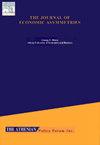气候政策的不确定性如何决定绿色创新的采用?金砖国家的新视角
Q1 Economics, Econometrics and Finance
引用次数: 0
摘要
政府制定的气候政策信息的缺乏可能导致其他部门采取破坏性政策(特别是与环境可持续性相关的政策)。本研究的主要目的是研究气候政策不确定性(CPU)如何影响可持续绿色创新的采用。本研究的重点是2000年至2022年间,CPU对金砖国家环境技术发展(EDT)和环境专利注册(EPR)的影响。本研究利用FMOLS和CS-ARDL模型,采用严谨的方法研究了CPU与绿色创新之间的关系。为了考虑影响绿色创新的各种因素,该分析纳入了一系列金融和经济指标,包括实际利率(RIR)、GDP FDI流入和金融发展(FD)。结果表明,环境资源占用率对环境技术的开发和注册均有显著的负向影响,表明环境技术的开发和注册受到较高的政策不确定性的阻碍。相反,对GDP、FDI和FDI的积极影响鼓励了绿色创新的发展和采用。该研究的进一步发现是,绿色技术投资受到风险投资机构较高借贷成本的负面影响。这些发现的后果强调了立法者需要确保法规的可预测性和稳定性,以促进绿色创新。通过制定一套更加统一的法规,政府可以鼓励对环境技术的投资和进步。本研究的新颖之处在于它拓展了现有文献对其他类型不确定性对绿色创新影响的研究,而目前的分析主要集中在cpu -绿色创新采用关系上。本文章由计算机程序翻译,如有差异,请以英文原文为准。
How does climate policy uncertainty determine green innovation adoption? New perspectives from the BRICS
The lack of information on climate policies designed by the government may lead to disruptive policies (specifically policies related to environmental sustainability) by the other sectors. The primary objective of the current study is to examine how climate policy uncertainty (CPU) affects the adoption of sustainable green innovations. The effects of CPU on environmental technology development (EDT) and environmental patent registration (EPR) in the BRICS economies between 2000 and 2022 are the focus of this study. This study investigates the relationship between CPU and green innovation using a rigorous methodological approach utilizing the FMOLS and CS-ARDL models. To account for the various factors influencing green innovation, the analysis includes a range of financial and economic indicators, including real interest rates (RIR), GDP FDI inflow, and financial development (FD). The results show that CPU has a significant negative impact on both EDT and EPR, indicating that the development and registration of environmental technologies are hampered by higher policy uncertainty. In contrast, positive effects on GDP FD and FDI encourage the development and adoption of green innovations. A further finding of the study is that investments in green technology are negatively impacted by RIRs' higher borrowing costs. The ramifications of these findings underscore the need for legislators to guarantee predictability and stability in regulations to promote green innovation. By creating a more uniform set of regulations, governments can encourage investment in and progress in environmental technologies. The research's novelty is found as it expands the existing literature exploring the impact of other types of uncertainties on green innovation, while the current analysis focuses on CPU-green innovation adoption nexus.
求助全文
通过发布文献求助,成功后即可免费获取论文全文。
去求助
来源期刊

Journal of Economic Asymmetries
Economics, Econometrics and Finance-Economics, Econometrics and Finance (all)
CiteScore
4.80
自引率
0.00%
发文量
42
审稿时长
50 days
 求助内容:
求助内容: 应助结果提醒方式:
应助结果提醒方式:


